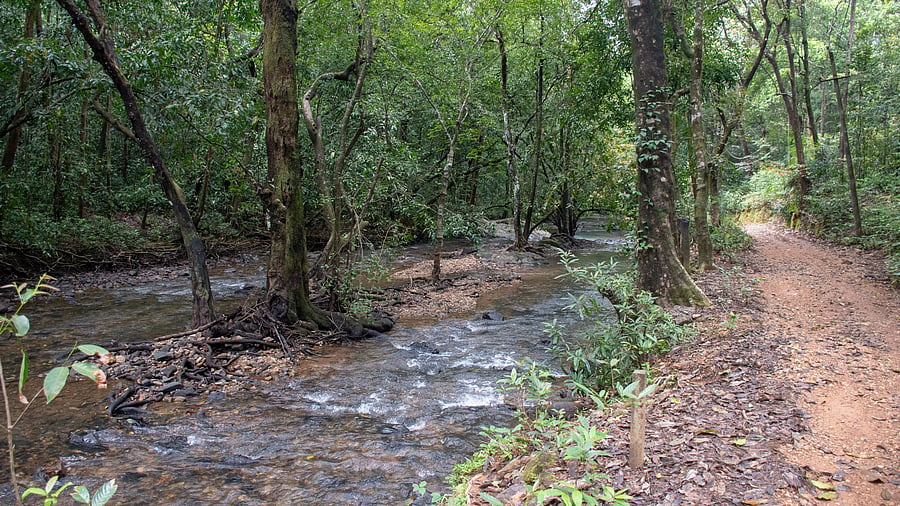
Researchers and experts have contested the claims of Karnataka Power Corporation Limited (KPCL) that the proposed Sharavathi pumped storage project won’t have negative ecological consequences.
For instance, in the detailed project proposal (DPR), KPCL mentions that the project will require axing of 16,000 trees.
The researchers, however, point out that more than one lakh trees will be cut while widening the 12-km-long road from the main road of Gerusoppa village to the tunnel mouth near Begodi village, so that heavy earth moving machines could be moved for the project.
“KPCL, while preparing DPR, has considered only trees that have a girth of more than 30 cm. This evergreen forest land has several endemic creepers, shrubs and plants, which have not been taken into account,” said Mahesh Hegde, a member of Save Sharavathi Valley campaign.
It is not just the dense forest cover along the road that faces threat from the project, but also three seasonal streams whose course could be altered. The streams don’t find a mention in the official report.
Those opposing the project question KPCL’s plan to utilise boulders that would be excavated while digging the 7.2-km-long tunnel.
After the Union Ministry of Environment, Forest and Climate Change (MoEFCC) did not give permission to set up a new stone quarry and sand mine site for the project, KPCL decided to use by-products of excavation for civil work.
“Has KPCL commissioned any scientific study to analyse the strength of these millennium-old rocks before deciding that crushed stone could be used as jelly stones and M-sand for civil work,” asked wildlife researcher Girsh Jenny.
KPCL estimates that civil works for the project will cost it Rs 3,302 crore.
“The project components are changing with every passing day. The details in the published Environmental Impact Assessment report were not reflected in the official presentation at the recent public hearings,” Jenny said.
KPCL officials, during the meetings, acknowledged that they hadn’t done any study on rocks found in the hills.
Based on studies conducted for earlier projects, locals say the hills are rich in bauxite, iron ore and other minerals. The area falls under grade-3 seismic zone (moderate damage risk zone).
Local residents fear that the use of nearly 18,000 tonnes of industry blasting materials as mentioned in DPR could make the region landslide prone.
Environmental activist Akhilesh Chipli said, “KPCL officials are not presenting the complete picture. They have not conducted any scientific study of the region and are relying on decade-old data. There have been several new discoveries and studies revealing unique habitat of the area,” he says.
Manjunath Hegde of Begodi, which would face the highest brunt of the project, said, “While KPCL officials claim that only 54 hectares of forest and 24 hectares of private land will be acquired, the muck they dump might affect even the neighbouring revenue land where multiple crops are being grown for about half a century”. KPLC officials refused to comment on record.